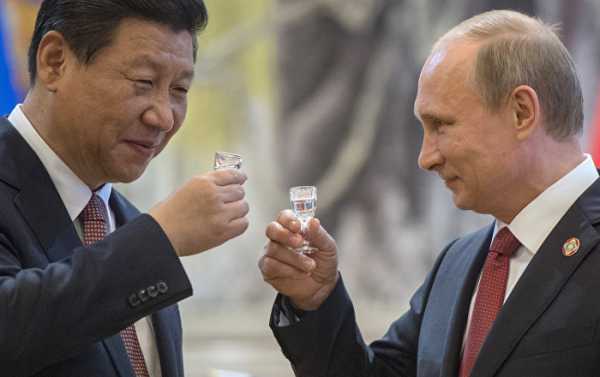
Beijing has turned its back on US crude and natural gas shifting to other sources amid the US-China trade war. It appears that Russia’s energy industry has largely benefitted from Donald Trump’s tariff spree and is likely to call the shots in the Chinese energy market for the foreseeable future.
American oil and liquefied natural gas (LNG) are giving way to Russian hydrocarbons on the Chinese energy market.
‘Russia’s energy sector has emerged as a beneficiary of a series of unilateral actions by the US, with its crude oil exports to the Chinese market skyrocketing and liquefied natural gas (LNG) exports poised to reach new highs,’ The Global Times, a Chinese online newspaper, wrote on 26 November.
The US has been losing its grip in East Asia since the Trump administration resorted to a tough trade strategy against Beijing this spring. In March 2018 Washington announced the imposition of additional tariffs on steel and aluminium imports to the US and slapped high duties on Chinese products in subsequent months citing alleged “unfair trade practices” by the People’s Republic of China.
While Beijing responded in a tit-for-tat manner that refrained from targeting US oil and natural gas. However, Donald Trump’s decision to impose additional tariffs on $200 billion in Chinese goods on 24 September seemingly became the last straw: the same day the People’s Republic retaliated with levies on $60 billion in Americans goods, including a 10-per-cent tariff on US LNG.
It appears that the Trump administration has shot itself in the foot as China dramatically diminished the acquisition of oil and gas from the United States by October 2018.
On 18 September — even before the introduction of 10-per cent duties on the American super-chilled fuel — Reuters signalled that US LNG exports to China were rapidly declining as the Sino-American trade war escalated.
‘Prior to the slowdown, China was on track to import 141.6 billion cubic feet (bcf) of US LNG in 2018,’ the media outlet highlighted, adding that ‘at its current pace, however, China is now on track to purchase less than 100 bcf of US LNG in 2018 — less than last year.’
In addition, first, Sinopec, a Chinese oil and gas enterprise and then PetroChina and Zhenhua Oil, turned their back on American petroleum with independent Chinese refiners following suit.
On 3 October, Reuters reported that US oil shipments to China had completely stopped citing China Merchants Energy Shipping Co (CMES).
Russia is Filling the Niche
Predictably, the niche was immediately filled by international market players with Russia as a leading energy supplier.
Australia, Qatar and Malaysia emerged as the country’s main providers of LNG in 2018. However, Russia is steadily increasing its LNG exports.
While Russia and China are implementing the joint Power of Siberia pipeline project aimed at delivering 38 billion cubic metres (bcm) of natural gas annually for 30 years to the People’s Republic, Moscow has offered China its own super-chilled fuel produced by Novatek’s Yamal LNG.
In July 2018, Novatek delivered its first ever cargo of LNG to China through the Northern Sea Route. The same month the Russia’s natural gas producer announced that China National Petroleum Corp (CNPC) and the Silk Road Fund signalled their willingness to participate in the Arctic LNG 2 plant project that is due to become operational in 2023.
As for crude oil, Russia’s imports to China have increased 58 per cent from a year earlier reaching about 1.73 million barrels per day (bpd), according to the country’s General Administration of Customs data.
‘For the first 10 months, Russian imports were at 57.91 million tonnes, or 1.39 million bpd, up 16.6 per cent,’ Reuters highlighted on 26 November.
‘Russian oil has the best prices and best availability,’ Li Li, director of research at Shanghai-based research and consulting firm ICIS China, told Global Times on Monday.
It appears that the loss of the lucrative Chinese market will deal a serious blow to the American energy sector. It will be especially hard for US fuel exporters to find alternative markets, especially when it comes to LNG.
Last year alone the LNG consumption in China increased by 14.8 per cent, to 238.6 bcm. In 2020 it is expected to reach 270 bcm. In addition, China was the second largest consumer of American oil (after Canada). In May 2018, Beijing imported almost 427,000 barrels of black gold per day from the US.
Sourse: sputniknews.com






